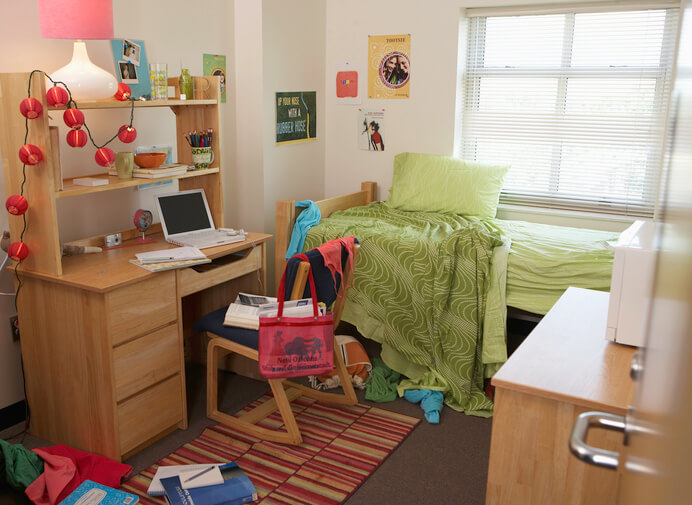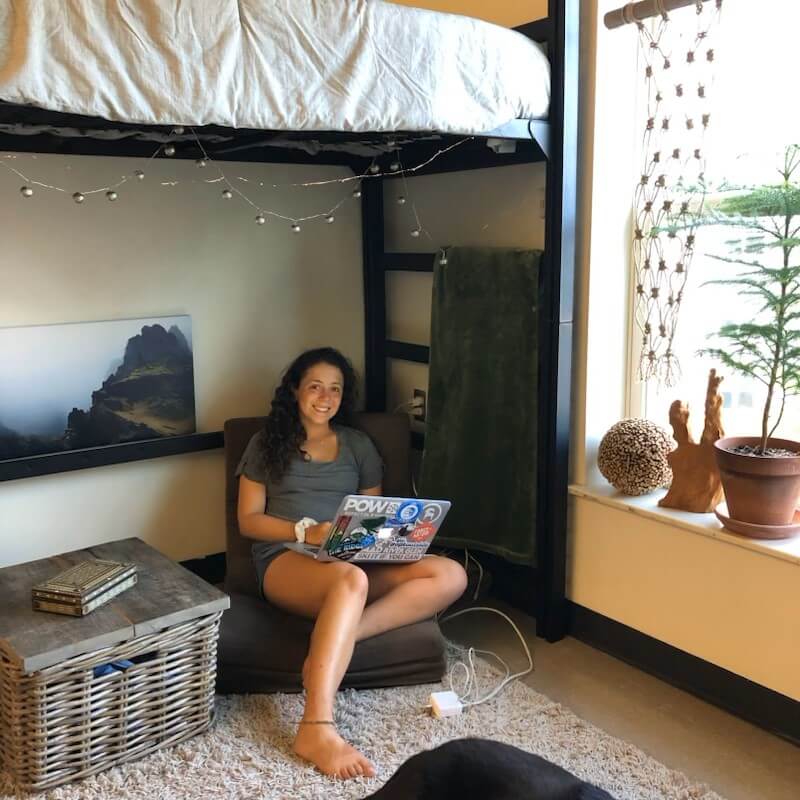As you prepare to go off to college, you’ll want to make it as seamless, stressless and overall drama-free a transition as possible.
Many colleges and universities have personnel who specialize in helping students acclimate to their new surroundings.
At Long Island University’s Brookville and Brooklyn campuses, each student is paired with a success coach who works with them on all areas of the college experience throughout their four years, says Michael Berthel, vice president for student affairs and enrollment.
“They work with them on how to get involved on campus,” Berthel says. “They work with them on enrolling in classes, financial aid, questions about scholarships, and taking advantage of clubs and internships.”
At LIU’s orientation, new students meet their success coaches and orientation leaders (upper-level students), to learn about the university and its resources, meet faculty, and participate in student events – all geared to make new students feel comfortable and part of the university.
“When you think of the anxieties of starting in a new place, a lot of times it’s just familiarizing yourself with the people, the campus, and removing some of the mystery of the change,” Berthel says.
In most, if not all, universities, students living on campus will also have a residence assistant to help manage the ins and outs of dorm life.
LIU has a mandatory weekly college 101 class, where students have peer mentors and get a thorough introduction to the university to guide them through their first semester.
Keeping it Together During the College Transition
To help ward off any anticipatory anxiety, it’s important to get as much exposure to the school as possible by attending summer orientation and joining the school’s Facebook groups, where you can find friends and even roommates, says Dr. Jonathan Kratter, a Melville-based clinical psychologist specializing in children and adolescents.
“The orientation program is a critical part of easing the transition,” says Kratter. “Kids will often make connections with other kids who are going to be there; sometimes they continue their friendship before school even begins.”
Students should be aware that parent visiting weekend is right around the corner – typically in October – with Thanksgiving vacation following soon afterwards, notes Kratter. “It’s good to know they’re not completely disconnecting from family and friends and there are built-in visits to help with the transition.”
While some students might rely on technology to connect with family and friends back home, Kratter advises that they shouldn’t do so to the exclusion of meeting new people.
To stay organized, Kratter suggests using Google calendar for reminders and sticking to a schedule for studying.
If needed, take advantage of the college’s tutors, who can become ongoing support and resources.
“Sometimes kids wait until things get a little out of control before they seek out a tutor,” he says.
If you had accommodations in high school, like extended test-taking time, apply for them early in your freshman year.
Avoid the Freshman 15 in College
When you go off to college, it will be the first time no one’s watching what you’re eating, says Madeline Berg, a Woodbury-based nutritionist.
Nutrition, as with everything else, is “an an exploration and a time of freedom and sometimes the kids have to go a little bit wild before they come back to the good habits they were raised with,” Berg says. “They have to test it out.”
With the various pressures you’re experiencing, you might do a lot more emotional eating.
“Ninety-nine percent of the time what we eat has nothing to do with hunger,” says Berg, who recommends taking fruit from the cafeteria for healthy snacking while in your dorm or between classes.
“Most of the time, meals are unlimited, so if you’re going to walk out with anything, make it be an apple or a banana,” says Berg, adding that carrots and yogurt are other healthy snack choices.
While you should be mindful of what and why you’re eating, Berg cautions, “Be kind to yourself and give yourself some grace, because it’s very stressful to go away for the first time.”

Decorating the College Dorm
Living away from home during college is one of the biggest first leaps towards independence and an opportunity for self-expression, says Donna Sheehan, owner of Inner Sense Interiors of Bellport.
When decorating your dorm room, ask yourself how you want to feel in the room and, to get inspiration, check Pinterest and other online resources for ideas.
“Remember too, your room style will be a clue to others about who you are, so consider your room design as one way you introduce yourself to your new college acquaintances,” says Sheehan.
To help minimize homesickness, take a piece of your home with you, Sheehan advises, like “that favorite pillow, that goofy statute, etc., along with a few framed photos of loved ones.”
Keeping clean sheets on a freshly made bed will also help make you feel comfortable in your new digs, Sheehan adds.
Staying on Budget in College
For students who’ve never had their own bank accounts or had any experience budgeting their own money, Michael Serao, executive vice president/chief administrative officer for First Central Savings Bank, headquartered in Glen Cove, recommends always putting at least 20% of your money into savings before paying your bills or expenses.
“I highly recommend debit cards,” adds Serao. ”They eliminate the temptation to spend and increase debt and high-interest expense. Credit cards and cash applications can be tempting, but you can easily lose track of your income budget and open yourself up to fraud and high interest expense.”

































